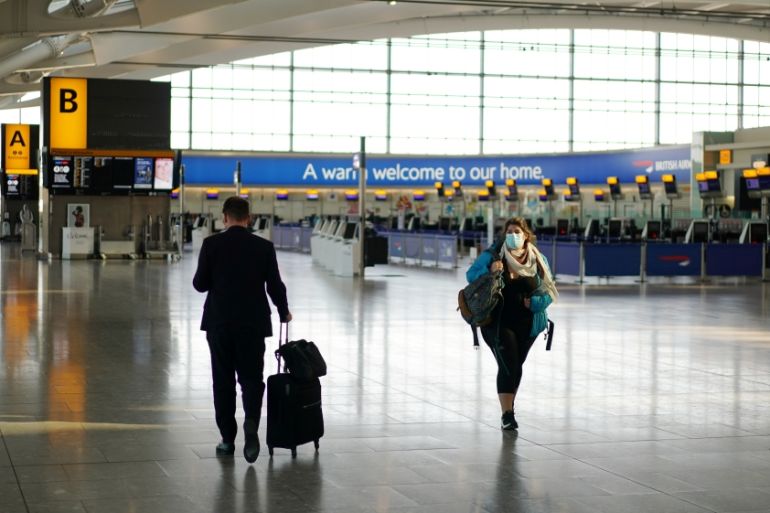British Airways, easyJet, Ryanair sue UK over quarantine policy
Three airlines argue that mandatory quarantine measure should be limited to passengers from ‘high risk’ countries.

Three major airlines have launched legal action against the United Kingdom government, describing the country’s plan to quarantine most incoming travellers as “flawed”.
British Airways, easyJet and Ryanair said in a statement on Friday that the quarantine would have a “devastating effect” on tourism and the wider economy.
Keep reading
list of 3 itemsUK partly reopens primary schools despite coronavirus warnings
‘Nothing but soundbites’: UK PM Boris Johnson left isolated
The airlines want the government to re-adopt a previous policy introduced on March 10, where quarantine was limited to passengers from “high risk” countries, they said in a statement.
“This would be the most practical and effective solution and enables civil servants to focus on other, more significant, issues arising from the pandemic while bringing the UK in line with much of Europe which is opening its borders mid-June.”
The UK’s policy
Quarantine measures imposed this week stipulate that all passengers – bar a handful of exceptions like truckers or medical workers – must fill in a form detailing where they will self-isolate for two weeks.
The requirement applies regardless of whether they are UK citizens or not, and those who fail to comply could be fined.
The quarantine was imposed after a heated debate on whether it would help the country’s efforts to tamp down the outbreak or simply stamp out any hopes that its tourism industry would recover following months of lockdown.
Though industry advocates have suggested that the UK should create “air bridges” with countries that have low transmission rates, the government has hesitated.
Airlines around the world are being hit by the near-total freeze in travel as countries seek to contain the outbreak.
Carriers are forecast to lose $84bn globally this year, which would be the industry’s worst ever by far.
Some have filed for bankruptcy or sought bailouts to survive the near-shutdown in their activity, and many are cutting thousands of jobs. The sector will likely take years to recover.